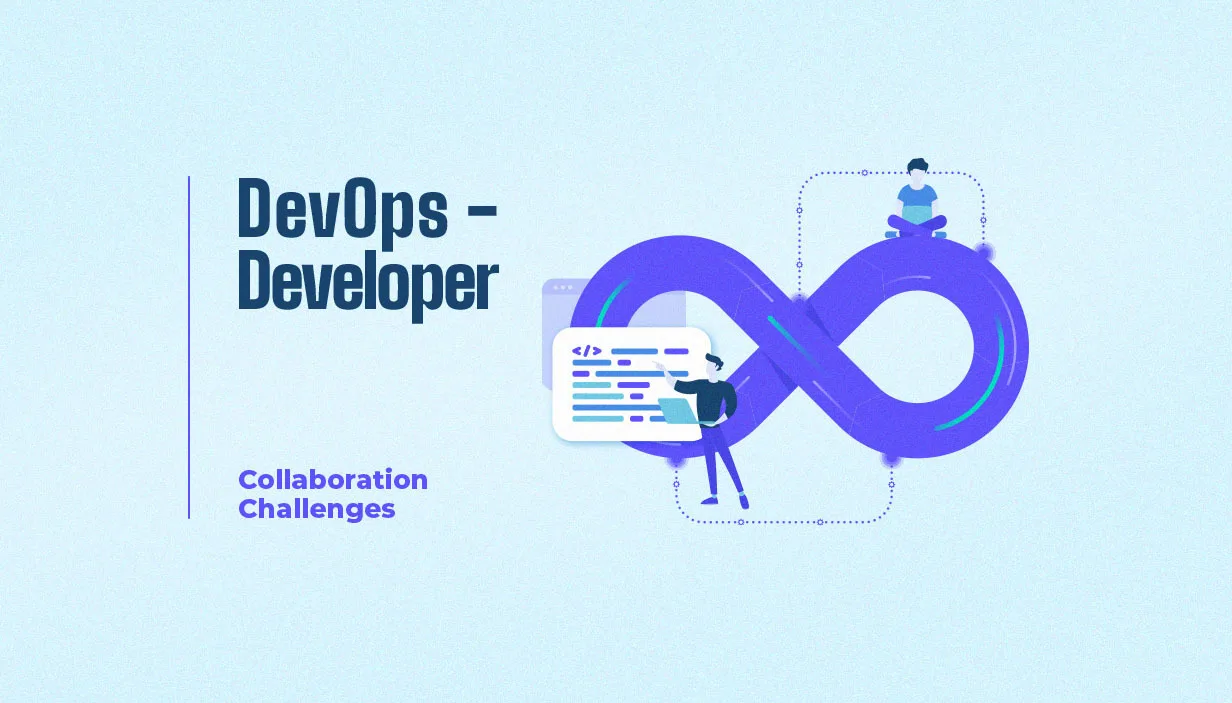In today’s fast-paced software landscape, collaboration between DevOps and development teams is essential for delivering high-quality products quickly and efficiently. DevOps collaboration is important because it enables effective teamwork among key business units, helping organizations achieve both technical and business benefits within a DevOps environment. Yet, despite the promises of DevOps, many organizations struggle with persistent collaboration challenges. Understanding these obstacles, and knowing how to overcome them, can transform your team’s productivity, reduce costs, and accelerate your software delivery. Embracing a strong DevOps culture is a key factor in breaking down silos and supporting successful collaboration between development and operations teams.
Why Is DevOps Collaboration Between DevOps and Developers Important?
Effective collaboration between DevOps and developers goes beyond simply working together. It enables teams to break down silos, streamline workflows, and deliver value to customers faster. DevOps professionals play a crucial role in facilitating cross-functional teamwork, ensuring that collaboration extends across business and technical teams. When teams are aligned, organizations benefit from:
- Improved efficiency and faster project delivery: Teams can resolve issues quickly and avoid bottlenecks, which is essential for DevOps success and is driven by strong human collaboration.
- Enhanced software quality and reliability: Early detection of bugs and smoother deployments.
- Better resource utilization and cost control: Optimized use of cloud resources and budgets.
For organizations seeking to optimize their infrastructure, robust cloud infrastructure management is a foundational step toward seamless collaboration and supporting the internal team.
Common Cross Team Collaboration Challenges in DevOps and Development
These are some of the biggest challenges in DevOps developer collaboration, which can significantly impact workflow efficiency and project outcomes.
Communication Gaps Between Teams
A frequent barrier is the communication gap between DevOps and development teams. Developers may focus on code quality and feature delivery, while DevOps prioritizes stability, scalability, and deployment processes. This difference in language and priorities can lead to misunderstandings, delayed feedback, and frustration. Effective collaboration between software development teams and operations teams is essential to bridge these gaps and ensure smooth project delivery.
Siloed Workflows and Lack of Transparency
When teams work in isolation, visibility suffers. Developers might not be aware of operational constraints, and DevOps may lack insight into upcoming changes. This siloed approach creates duplicated effort and missed opportunities for process improvement. Lack of coordination between different teams can create bottlenecks in the workflow, slowing down progress and reducing overall efficiency.
Misaligned Goals and Priorities
DevOps aims for stability and risk reduction, while developers often push for rapid feature releases. Without shared objectives, teams can find themselves working at cross-purposes, leading to delays and rework. Misalignment between teams can also negatively impact project timelines, making it harder to meet deadlines and deliver value quickly.
Inadequate Tooling and Integration
Using incompatible tools or lacking automation can make collaboration cumbersome. Manual handoffs, inconsistent environments, and fragmented communication channels increase the risk of errors and slow down delivery. Poor tool choices can create bottlenecks and complicate deployment cycles, making it difficult to maintain a smooth and efficient workflow.
Role & Responsibility Ambiguity
Unclear ownership of tasks or overlapping responsibilities can result in confusion and accountability gaps, making it harder to resolve issues efficiently.
Security and Governance Concerns
Balancing the need for speed with robust security and compliance can be challenging. Without proper controls, organizations risk security breaches and compliance violations. Poor collaboration and tool integration can also increase the risk of security vulnerabilities within DevOps environments.
For organizations navigating regulatory requirements, investing in cloud compliance is essential to maintain security while enabling collaboration. At the same time, knowledge sharing and collaboration across DevOps projects are crucial to overcoming these challenges and ensuring successful outcomes.
Cross Team Collaboration: Bridging Silos for Success
Cross team collaboration is a cornerstone of successful teamwork in DevOps environments. By breaking down barriers between development teams, operations teams, and other stakeholders, organizations can foster a culture of collaboration that drives better business outcomes. Leveraging effective collaboration tools such as collaboration platforms and project management tools enables team members to communicate seamlessly and stay aligned throughout the software development lifecycle.
DevOps teams can further improve collaboration by adopting tools like continuous integration and continuous delivery (CI/CD) pipelines, which automate repetitive tasks and streamline deployment processes. Standardizing environments and automating tasks not only reduces human errors but also enhances the overall quality and reliability of software development. Ultimately, prioritizing cross team collaboration helps teams to improve DevOps collaboration, accelerate delivery cycles, and achieve shared goals more efficiently.
The Role of the DevOps Engineer in Fostering Collaboration
DevOps engineers are pivotal in fostering collaboration across DevOps teams, development teams, and operations teams. By championing open communication and facilitating knowledge sharing, DevOps engineers help teams understand each other’s challenges and perspectives, which is essential for improving collaboration efforts. They play a key role in identifying and resolving collaboration issues, such as bottlenecks in deployment processes, and ensuring that proper governance and DevOps practices are consistently applied. With their technical knowledge and expertise, DevOps engineers support DevOps initiatives by guiding teams through complex development processes and helping to reduce errors. By encouraging collaboration, providing leadership support, and promoting a culture of continuous improvement, DevOps engineers enable teams to achieve successful teamwork and improve collaboration across the organization.
Best Practices to Overcome Collaboration Challenges
Foster Open Communication and Transparency
Encourage regular stand-ups, retrospectives, and shared documentation. Using collaborative platforms ensures everyone stays informed and aligned.
Align Goals and Create Shared Objectives
Establish unified KPIs that reflect both development and operational priorities. A shared vision drives teams toward common outcomes.
Implement the Right Tools and Automation
Integrated CI/CD pipelines, automated testing, and unified project management tools minimize manual work and reduce errors. Selecting essential tools is crucial for optimizing workflows, automating tasks, and fostering effective collaboration among Dev, Ops, and Security teams. Leveraging DevOps automation can dramatically streamline workflows and improve team efficiency.
Encourage Knowledge Sharing and Cross-Training
Organize workshops and cross-team learning sessions. When team members understand each other’s roles and challenges, they collaborate more effectively.
Define Clear Roles and Responsibilities
Use frameworks like RACI matrices to clarify who owns what. Clear job descriptions reduce confusion and help teams respond quickly to issues.
Build a Culture of Blameless Problem-Solving
Focus on identifying root causes rather than assigning blame. This approach encourages learning from mistakes and fosters continuous improvement. Continuously improving devops collaboration through ongoing evaluation and adaptation is essential for overcoming new challenges and maintaining effective teamwork.
Collaboration Tools That Facilitate DevOps Developer Collaboration
The right tools can bridge gaps and accelerate teamwork:
- Version control systems for collaborative code management.
- CI/CD pipelines for automated builds and deployments.
- Messaging platforms for real-time communication.
- Project management tools for task tracking and visibility.
- Monitoring dashboards for shared insights into system health.
A dedicated DevOps team often plays a key role in selecting, managing, and integrating these collaboration tools to support efficient workflows and enable seamless communication across engineering groups.
For teams looking to maximize efficiency and reduce expenses, exploring cloud cost optimization solutions can be a game changer.
Managing Cloud Costs and Resource Allocation in Collaborative Environments
Managing cloud costs and resource allocation is a big challenge for DevOps teams operating in collaborative environments. Utilizing cloud platforms like Google Cloud allows devops teams to scale resources on demand, improving deployment frequency and supporting agile software development. However, without proper governance, cloud costs can escalate quickly, leading to critical issues that impact project budgets and timelines. To address this, DevOps teams can leverage tools for cost management and resource allocation, enabling them to monitor usage and optimize spending.
Automating tasks and standardizing environments further reduces errors and enhances efficiency, while data security and quality assurance tools help maintain high standards throughout the development process. By proactively managing cloud costs and resources, teams can ensure sustainable growth and deliver value without compromising on quality or security.
Measuring Collaboration Effectiveness: Metrics and Methods
Measuring collaboration effectiveness is crucial for teams aiming to evaluate the impact of their initiatives and continuously improve collaboration efforts. Key metrics such as deployment frequency, lead time, and mean time to recovery (MTTR) provide valuable insights into how well teams are working together and where bottlenecks may exist in deployment processes. Collaboration tools like Microsoft Teams facilitate open communication and knowledge sharing among team members, making it easier to gather feedback and analyze collaboration patterns. By regularly reviewing these metrics and incorporating input from team members, DevOps teams can identify opportunities for improvement and implement targeted changes.
Embracing DevOps practices such as continuous learning and organizing training sessions helps build technical knowledge and fosters a culture of collaboration. Through ongoing measurement and a commitment to continuous improvement, DevOps teams can improve collaboration and achieve successful teamwork.
Building a Collaborative Culture: Leadership and Team Initiatives
Leadership plays a pivotal role in shaping a culture of collaboration. By promoting open dialogue, recognizing team achievements, and supporting team-building activities, leaders can create an environment where collaboration thrives.
- Leadership support: Champions collaboration and breaks down departmental barriers.
- Team-building activities: Strengthen trust and improve communication.
- Recognition and rewards: Celebrate collaborative successes to reinforce positive behaviors.
As organizations grow and evolve, cloud migration initiatives can also serve as catalysts for cross-team collaboration, bringing DevOps and developers together to achieve shared goals.
Final Thoughts
DevOps-developer collaboration is vital for delivering value in today’s digital world. By identifying common challenges and implementing best practices, organizations can break down silos, streamline workflows, and achieve faster, more reliable software delivery. The journey to effective collaboration is ongoing, but with the right mindset, tools, and leadership support, your teams can unlock their full potential.


